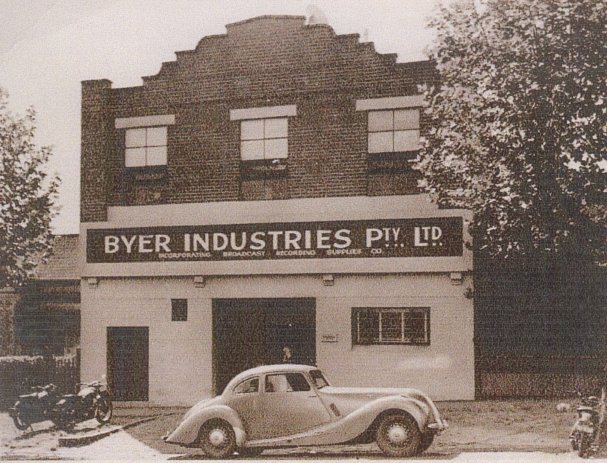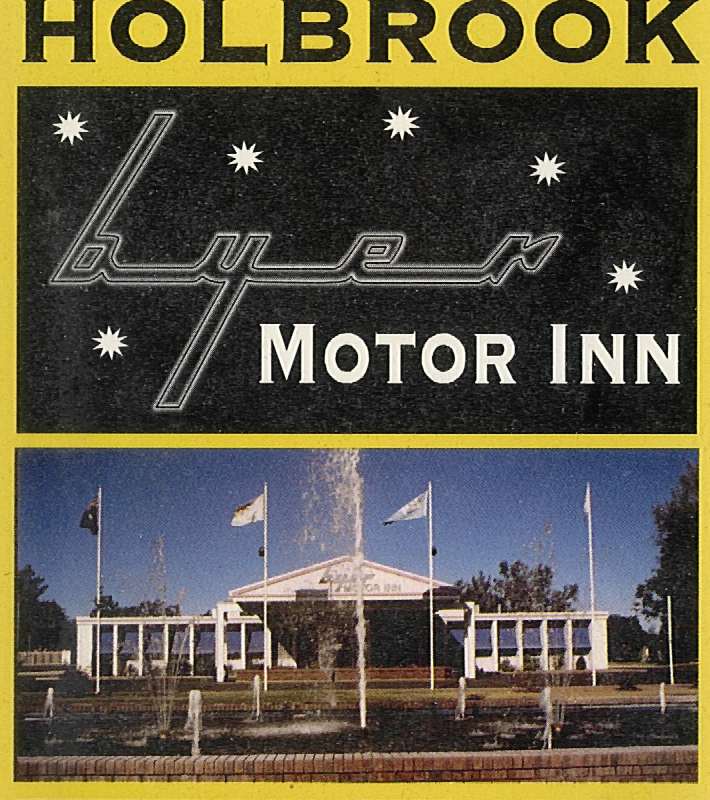Max Byer trained and worked as a projectionist, his work also gave him some experience with the technical aspects of the equipment as he was involved with the conversion of silent and sound-on-disk projectors to optical sound. He saw a need for locally produced blank acetate recording discs and the dividend from a wager on the Melbourne Cup prior to World War II helped Max to start his business, Broadcast Recording Supplies (BRS). Max set up his business in the backyard of his home at 48 Elizabeth Street, Malvern in 1940. Machinery was built to make aluminum-base blank discs for sound recording studios. Legionaire Sound Productions Pty Ltd were the initial clients of Broadcast Recording Supplies. War time restrictions made the importation of blank discs impossible also the war produced an increased demand for blank discs because censorship regulations forcing the pre-recording of more radio programmes. Due to these war time constraints Radio Australia became Broadcast Recording Supplies largest customer for blank discs. By April 1940 BRS moved to 8 Dorcas Street, South Melbourne. Initially only the up-stairs front section of the building was occupied by BRS. The entire ground floor was used by Timewell & Butterworth, motor body repairers, however, this business closed a short time later as the staff were enlisting in the services. The ground floor was then occupied by the U.S. Marine Quartermaster's Store for mobile radio stores and servicing. Near the end of the war the U.S. Marines vacated the space and in moved the Australian Government Department of Import Procurement.

When the war was over BRS took over the ground floor section of the Dorcas Street building allowing further expansion. Early in the war years Max Byer developed a process for applying a phenolic coating to kraft paper for moulded laminars in the electrical and radio industries. Towards the end of the war a machine for coating kraft paper was constructed in the up-stairs section of 8 Dorcas Street. This was developed for use in the making of waterproof plywoods, used in the body section of Mosquito bombers. This plant was later moved to the Richmond premises of Stapleton & Lewis, Plywood makers.
By 1946 BRS was a major supplier of acetate discs in Australia and they were manufacturing 16" turntables for the broadcast industry. The company name was changed in August 1947 to Byer Industries Pty. Ltd. Over the next few years the product range expanded greatly to include turntables, disc cutters, tape add-on units for turntables, pick-ups, microphones, amplifiers, professional and domestic tape recorders and related products. Much of the manufacturing was carried out at the Dorcas Street site as there was an extensive workshop, a non-ferrous foundary, a pattern making shop, a spray paint shop, a tool making section, and electronics laboratory.
Byer also manufactured the PT6-JAH and M80 model tape recorders in Australia under licence for Magnecord.
Byer Industries had some financial difficulties in the mid 1950's and Rola Co (Aust.) Pty. Ltd. took over the operations of the Byer factory in late 1957 and continued to develop the product range.
Max Byer subsequently opened a Motel in Holbrook NSW which to this day still has the Byer logo prominently displayed on the building.

Max passed away in January 1985.
Much of the new information was recently provided to me by Allan Rowlands who was Max Byer's first employee, joining BRS in January 1941, Thank you Allan for your assistance.
